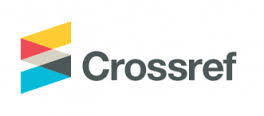Patterns of Family Upbringing and their Relationship to Self-Esteem among Gifted Students in Jordan
DOI:
https://doi.org/10.59759/educational.v3i1.536Keywords:
Family Upbringing Patterns, Self-Esteem, Gifted StudentsAbstract
The study aimed to identify the patterns of family upbringing among gifted students in Jordan, their degree of self-esteem, and to reveal the relationship between patterns of family upbringing and self-esteem among gifted students in Jordan. To achieve the goal of the study, the researchers adopted the descriptive, correlational approach. The study population consisted of all students from King Abdullah II Schools for Excellence, numbering (4807), including (2536) males and (2271) females, distributed among (13) schools in all the governorates of the Hashemite Kingdom of Jordan, the north, center, and south. As for the study sample, it was chosen by the researchers by using a cluster random method, and the school was the unit of choice, where the study sample reached (356) male and female students. To collect data, a questionnaire was developed that included two tools: the first to measure the patterns of family upbringing and it consists of two pictures, one for the father and expresses the style of upbringing that the father uses with his children, and the second for the mother and it explains the style of upbringing that the mother uses with her children from the point of view of the gifted student children. As for the self-esteem scale, the researchers developed it, and then formulated the tool’s items in their form. The primary form reached (75) items distributed into two main areas: the effectiveness dimension and the value dimension.
The results of the study showed that the patterns of family upbringing among gifted students from the father’s point of view were as follows: the democratic pattern to a high degree, the pattern of neglect to a moderate degree, the authoritarian style to a moderate degree. Whereas from the mother’s point of view they were as follows: the democratic pattern to a high degree, the pattern of neglect to a moderate degree, the authoritarian pattern to a low degree. The average means showed the degree of self esteem for gifted students was moderate, where the degree of value dimension was high, and the effectiveness dimension was moderate.
The results of the study also showed that there is a statistically significant positive relationship between the father’s democratic style and the mother’s democratic style and the self-esteem scale in all its dimensions and the total score, and that there is a statistically significant negative relationship between the authoritarian style and the neglectful style of the father and the authoritarian style and the neglectful style of the mother and between the measure of self-esteem in all its dimensions and the total score.
Conclusion: In light of the results of the study, the researchers presented a number of recommendations that were derived from the results of the study, the most important of which are: designing special curricula on the subject of self-esteem, theoretical and practical for university students to receive with the aim of empowering them with self-esteem skills, and emphasizing their activation in the school environment.


